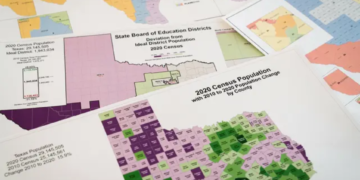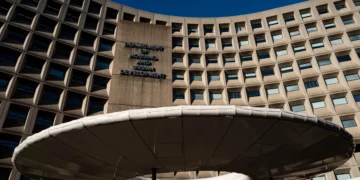July 8, 2025 Story by: Publisher
The NAACP Legal Defense Fund has withdrawn a federal racial discrimination lawsuit against Fayette County, Tennessee, after the county adopted a new electoral map that creates two commission districts where Black voters have a meaningful opportunity to elect candidates of their choice.
The lawsuit, filed in 2023 by the NAACP LDF in the Western District of Tennessee in late February alleged that the prior map diluted Black voting power and violated Section 2 of the Voting Rights Act. Black voters make up more than 25% of Fayette County’s population, but the 19-member county commission is entirely white.
“Our nation works best when every vote counts,” said Janette McCarthy Wallace, general counsel of the NAACP. “The adoption of this new map is a powerful affirmation of what happens when communities stand together and the legal system functions as it should, as a check against injustice and a safeguard for democracy.”
Fayette County is known nationally for Tent City (also called Freedom Village). Beginning in 1959, Black Fayette County sharecroppers who registered to vote and attempted to exercise their political rights faced eviction and were driven from their homes and lands. They set up Tent City, where they lived in military surplus tents furnished by local groups.
Background of the Dispute
In April 2023, the NAACP Legal Defense Fund filed suit against the Fayette County Election Commission, alleging that the county’s electoral map—approved by the Republican-controlled commission—violated Section 2 of the Voting Rights Act by diluting the voting power of Black residents.
The lawsuit argued that the map packed Black voters into a single district while fragmenting the rest across white-majority areas, undermining their influence in local governance. Plaintiffs included Black community leaders and voters from the Somerville area and surrounding precincts.
The lawsuit, filed in federal court, challenges the county commission map adopted during the 2021 redistricting process, asserting that it violates Section 2 of the Voting Rights Act and the Fourteenth and Fifteenth Amendments of the U.S. Constitution. Plaintiffs argue the map was drawn to dilute Black voting power and deny Black residents an equal opportunity to elect representatives of their choice.
Despite Black voters making up more than a quarter of Fayette County’s population, the 19-member county commission is entirely white. The lawsuit contends that the commission disregarded its own guidelines meant to protect minority voting power and ignored legal warnings that failing to create a district with a Black majority could expose the county to legal challenges. The commission also rejected alternative proposals that would have mitigated the alleged racial disparities.
The New Map and Settlement
In May 2025, Fayette County officials adopted a new redistricting plan following pressure from the courts and months of negotiations. The revised map features two Black opportunity districts—districts where Black voters make up a sufficiently large and cohesive portion of the electorate to potentially elect candidates who represent their interests.
Following the map’s adoption, the NAACP and its legal team reviewed demographic modeling and voting patterns. Determining that the new plan offered a “meaningful opportunity” for Black voters to elect their preferred candidates in two of the five commission districts, the organization voluntarily withdrew the lawsuit in early July.
“We are pleased that the revised map better reflects the community and complies with federal voting rights standards,” the NAACP said in a statement. “It is a victory for equal representation and civic participation in Fayette County.”
Legal and Political Impact
This outcome represents a rare instance of voluntary resolution in a southern redistricting case and could serve as a model for similarly contested counties across Tennessee and the broader South. It also avoids prolonged litigation, which can delay elections, incur high legal fees, and erode public trust.
Election officials confirmed the updated map will be in effect for the August 2026 local elections, and candidate qualifying deadlines will be announced this fall. Legal analysts noted that while the lawsuit’s dismissal does not constitute a formal judicial ruling, it sends a clear signal that preemptive compliance with the Voting Rights Act can spare jurisdictions costly legal battles.
Looking Ahead
The case withdrawal reflects a broader landscape of voting rights litigation and evolving district lines following the 2020 census. While the Supreme Court’s 2023 decision in Allen v. Milligan reaffirmed the power of Section 2 of the Voting Rights Act, enforcement often relies on legal action by groups like the NAACP to compel change.
For now, Fayette County will move forward with a new map designed to better reflect its multiracial population—a small but significant victory in the ongoing struggle for equitable representation in American democracy.
Source: The Commercial Appeal / NAACP LDF

















